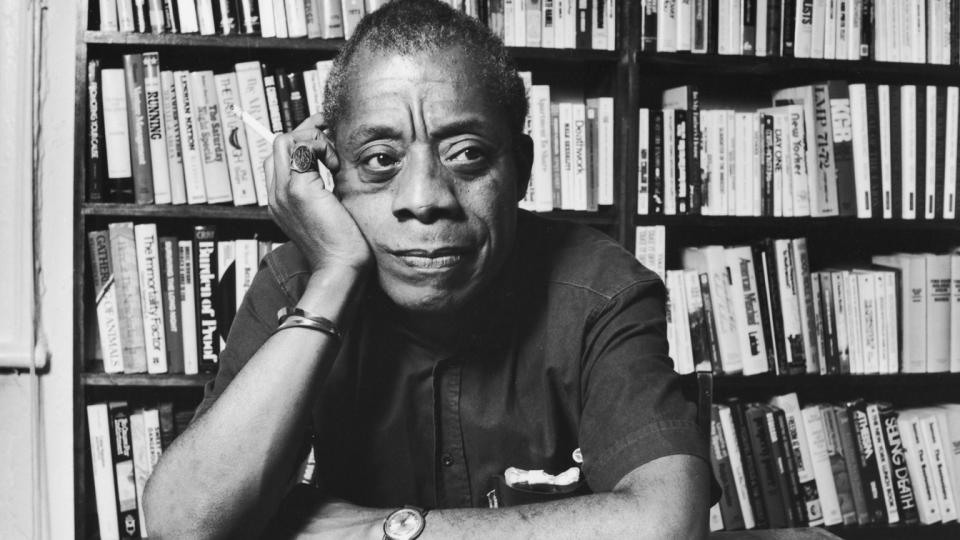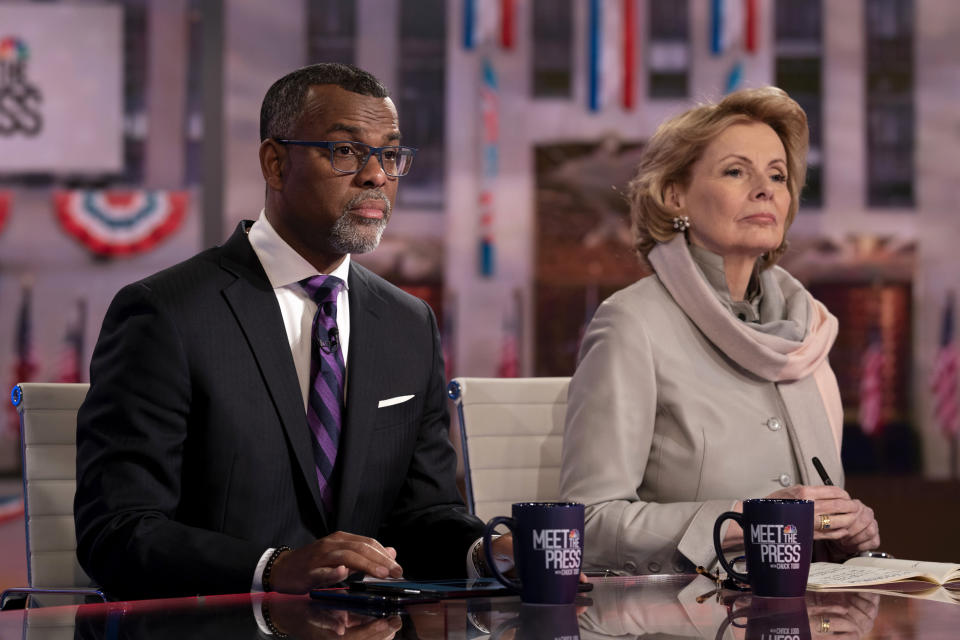Historian Eddie Glaude's new book on James Baldwin and racism calls on America to 'Begin Again'

Eddie Glaude wrote his new book about writer James Baldwin and America’s troubled history of racism before George Floyd was killed on Memorial Day this year.
But the book — a passionate, grief-stricken account of a Black historian’s attempt to make sense of our times and to find a way forward — could not be more timely.
“Part of the reason why I wrote the book is that I was grappling with my own despair and disillusionment” after the election of Donald Trump, said Glaude, the chair of Princeton’s African-American studies program and a mainstay on the set of MSNBC’s “Morning Joe.”
“How I came out of the other side of that despair was a kind of insistence on bearing witness, on telling the truth about who we are, laying bare the consequences of our monstrous actions over time and over our history,” Glaude said in an interview on “The Long Game,” a Yahoo News podcast.
His book, “Begin Again: James Baldwin’s America and Its Urgent Lessons for Our Own,” is part memoir, part history, and part biography of Baldwin, a towering figure in American literature who died in 1987. It was published on June 30 and chronicles Glaude’s quest to find a path that is buoyed by love but does not forsake or shortchange the pursuit of justice, using Baldwin as a guide.
Trump’s election, Glaude said, was a reassertion of the lie that “white people matter more than others” and that America is “a divinely sanctioned nation.”
America continues to fall short of the ideals in its founding principles, and living up to them means facing that fact, he said. Baldwin lived through a betrayal of the civil rights movement by white voters in the 1970s, Glaude said, and spent the last years of his life trying to come to grips with that treachery.

Ronald Reagan’s election in 1980 symbolized the betrayal, Glaude said. Reagan was “the West Coast version of George Wallace for many Black activists.”
Reagan oversaw “an economic and political epoch that would guarantee prosperity and liberty for Nixon’s not-so-silent majority and the Reagan Democrats,” Glaude writes in the book, while implementing criminal justice policies that nearly doubled the number of Americans in prison, from 329,000 when he took office to 627,000 when he left eight years later.
“This staggering rise in incarceration hit communities of color hardest: They were disproportionately incarcerated then and remain so today,” said a 2018 report on mass incarceration by the Brennan Center for Justice, a voting rights and social justice organization. The report noted that “while racial disparities are decreasing, the rate of incarceration for African Americans would only match whites after 100 years at the current pace.”
Now, as in the 1980s, Glaude writes, we are in what Baldwin called the “after times ... the disruption and splintering of old ways of living and the making of a new community after the fall ... the moment that is desperately trying to be born with a lie wrapped around its neck.”
He pointed to Trump’s actions last weekend, when he railed against diversity training in the federal government, as “trying to say to his constituency, ‘My defense of whiteness is patriotism.’”

Glaude’s book wrestles with complex emotions and settles on what W.E.B. Du Bois called “a hope not hopeless but unhopeful.” He concludes, like Baldwin, that hatred “corrodes the soul” and that vengeance is a dead end. He writes about how Baldwin supported some elements of the Black Panthers but ultimately parted ways with them over their belief that “power should be pursued, morality be damned.”
“Baldwin worried that their rejection of the moral underpinnings of the fight set them up for failure,” Glaude writes. “Sure, policy mattered. Power mattered. But in the end, for Jimmy, what kind of human beings we aspired to be mattered more. And I am convinced he was absolutely right.”
But, Glaude said, America must reimagine itself and create a new future that is more just, and to do so it must confront its past with honesty.
To begin again, he writes, is to “reexamine the fundamental values and commitments that shape our self-understanding, and ... look back to those beginnings not to reaffirm our greatness or to double down on myths that secure our innocence, but to see where we went wrong and how we might imagine or recreate ourselves in light of who we initially set out to be.”
“Baldwin called the nation, in his after times, to confront the lie of its own self-understanding and to get about the work of building a country truly based on democratic principles,” Glaude writes.
As for the 2020 election, Glaude said he will not repeat what he did in 2016, when he refused to vote for Democrat Hillary Clinton.
He wrote in Time magazine at the time: “I have to turn my back on the Democratic Party that repeatedly turns its back on the most vulnerable in this country, because the Party believes they have nowhere else to go.”
“I thought,” he said in the Yahoo News interview, “I had a window politically to push the Democratic Party to the left.
“I should have known a bit better. I thought that there was no way that the country would have elected someone who was so obviously unqualified to lead the country,” Glaude said.
“I’m definitely going to vote for Biden this time around,” he added.
_____
Read more from Yahoo News:

 Yahoo Sports
Yahoo Sports 

